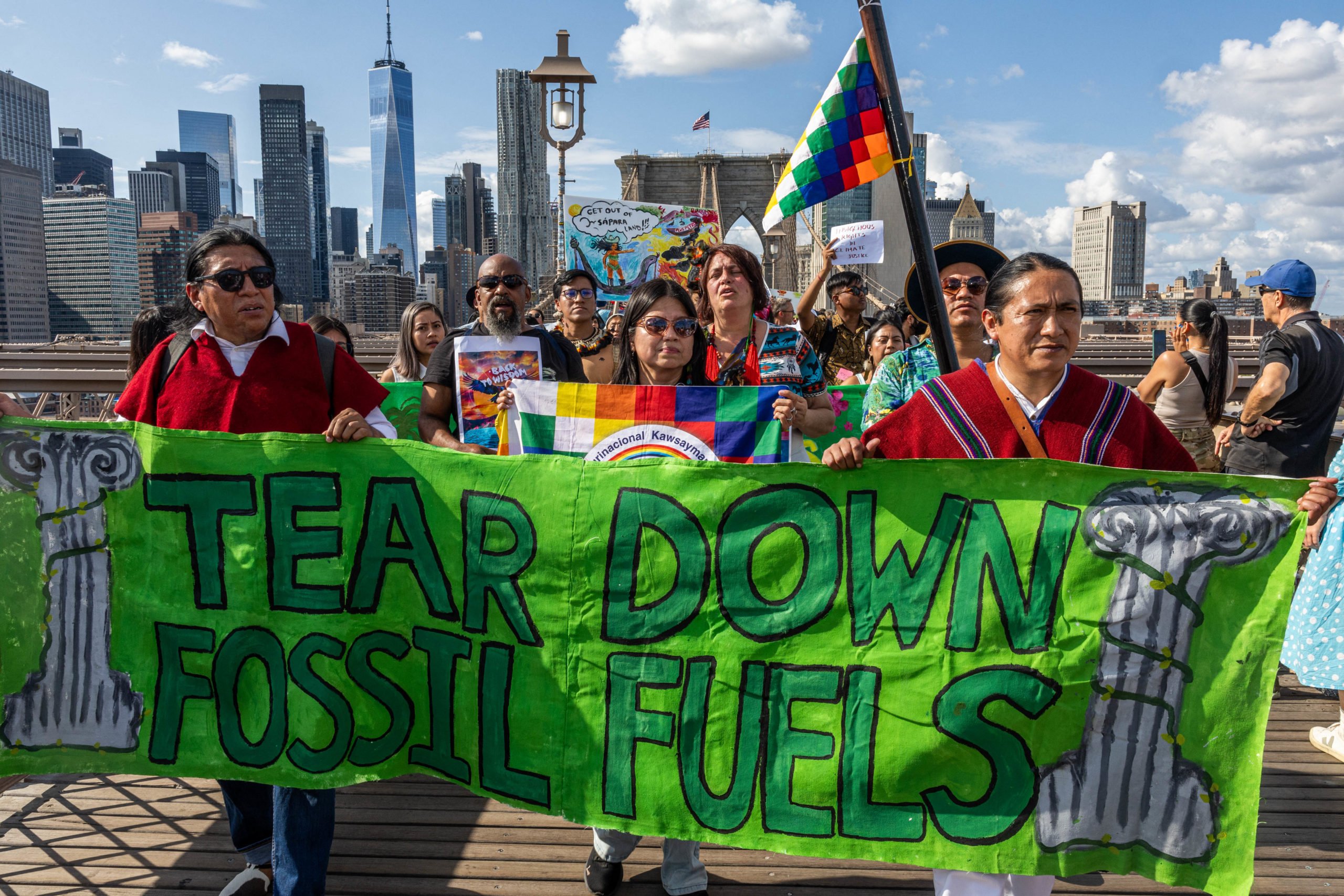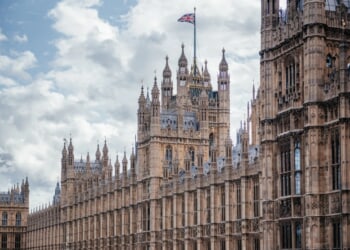Democrats are beginning to dial back some of their signature environmental policies in response to their mounting economic costs, but some policy analysts argue the changes are far more symbolic than substantive.
In recent months, Democratic leaders have moved to soften key climate regulations, including in California, where Gov. Gavin Newsom revised the state’s signature environmental review law in June. Observers say these changes reflect Democratic lawmakers’ growing awareness that the economic strain caused by climate policies is hurting their electability, but it remains to be seen whether the adjustments are here to stay for the long run.
On June 30, Newsom approved changes to the California Environmental Quality Act (CEQA), which has been widely criticized for causing project delays and exacerbating the state’s housing shortage and affordability crisis. The same month, the California Energy Commission, the state’s energy regulator, advocated for pausing the profit cap on oil refiners in the state after two major refineries announced they were closing their facilities. (RELATED: Trump Has No Shortage Of Targets In His War Against Blue State Climate Lawfare)

COLUMBIA, SOUTH CAROLINA – JULY 8: California Gov. Gavin Newsom speaks to local leaders at a coffee shop on July 8, 2025 in Florence, South Carolina. (Photo by Sean Rayford/Getty Images)
“It’s an acknowledgement that these policies are costly,” Wayne Winegarden, the Pacific Research Institute’s senior fellow in business and economics, told the Daily Caller News Foundation. “The median voter seems to be concluding that these policies impose costs that are too high. And you don’t win elections unless you get the median voter to vote for you.”
“He’s not going to get elected president unless he gets the median U.S. voter,” Winegarden said about Newsom, who stoked speculation about his 2028 ambitions during a two-day tour in the early primary state of South Carolina this week.
The political realities of aggressive climate policies are looming over California lawmakers, as the median home price in the state reached nearly $850,000 in the first quarter of 2025, which is more than double the national median. At the same time, the state continues to have some of the highest gas prices in the nation, driven in large part by its restrictive energy policies.
“Many people say they support the policies in a vacuum, but when you say it will cost an extra $1,000 a year, people say no. That’s what we’re in the middle of,” said Winegarden.
In New York, Democrat Gov. Kathy Hochul also quietly walked back the state’s proposed cap and invest program — a component of the 2019 Climate Leadership and Community Protection Act (CLCPA) — which sets a limit on carbon emissions and requires businesses to purchase allowances for emissions associated with their activities.
“New York never had a practical path to its climate goals,” Manhattan Institute fellow Ken Girardin told the DCNF, adding that officials never conducted the necessary cost estimates of state climate mandates.
In May, Hochul reportedly made another concession to her climate agenda by reportedly promising the Trump administration to cooperate on a gas pipeline project in the state in exchange for lifting restrictions on offshore wind development. At the same time, Hochul has fought the administration to preserve the congestion pricing program in New York City, ostensibly meant to reduce gas emissions.
In 2024, Hochul publicly acknowledged that New York would miss its statutory goal of meeting 70% its energy from renewable sources by 2030, citing rising costs and canceled energy projects. Nevertheless, the state is still pushing ahead with a number of climate initiatives, even ones that make life more expensive.
“Leaving CLCPA’s statutory goals intact — even as officials openly admit they won’t be met — has increased uncertainty and made it harder for businesses to plan for remaining or expanding in New York,” Girardin said.
Hochul’s office did not respond to a request for comment.

TOPSHOT – People cross the Brooklyn Bridge calling for leaders to “Tear down the pillars of fossil fuels” during a Youth Global Climate demonstration ahead of the UN Climate week and General Assembly in New York City on September 20, 2024. (Photo by ALEX KENT/AFP via Getty Images)
A “retreat” is how Politico recently described Democrats’ sudden backpedaling from some climate policy, while environmental groups have also sharply criticized the shifts.
“It’s one of the more disappointing turnabouts,” Jamie Court, president of Consumer Watchdog, a California-based non-profit that has advocated for stricter energy rules, told Politico. “We have backed down, and we may not be flying a white handkerchief, but it’s pretty close to white.”
Adding to these concerns, Chris Chavez, deputy policy director for the Coalition for Clean Air, questioned whether California still holds its position as a leader in environmental policy.
“California was the vocal climate leader during the first Trump administration,” Chavez told Politico. “It’s questionable whether or not that leadership is still there.”
While environmental groups have reacted strongly to what they perceive as aggressive rollbacks, some analysts say the reforms fall far short of a true policy reversal. California’s CEQA changes, for example, only streamline the permitting process for a narrow set of projects and favor union labor.
“‘We’re going to reform CEQA as long as the subsidized, politically connected big developers can demolish single-family homes in existing neighborhoods to build multifamily dwellings with union labor. Otherwise, you’re still screwed,’” Edward Ring, director of water and energy policy for the California Policy Center, told the DCNF. “Can you imagine a more corrupt version of so-called CEQA reform?”
Moreover, California and ten other blue states have sued the Trump administration for revoking the Golden State’s de facto electric vehicle mandate, further suggesting that Democrats are not fully letting go of the climate agenda as environmental groups fear. Various states and localities are still pursuing or plan to pursue legal action against oil and gas companies for their alleged contributions to climate change, even as some analysts warn that the climate lawsuits threaten energy production and security.
Several Democrat-run states, such as Hawaii and Maryland, are maintaining their zero-emission goals, at least on paper, while struggling to meet their ambitious timelines.
Ring suggested the recent rollbacks in states like California are only temporary, meant to relieve public pressure without derailing the long-term agenda.
“[Democrats] are going to slow down just enough to avoid the public uprising, and then they’ll get right back to it as fast as they can get away with it,” said Ring. “I don’t think they’re backing away one bit.”
Newsom, for his part, insists he remains fully committed to his climate goals, asserting that achieving green energy and addressing cost-of-living concerns are not mutually exclusive.
“Smarter housing is climate policy — it slashes emissions — and no one’s pushing harder than Gavin Newsom,” a spokesperson for Newsom told the DCNF.
All content created by the Daily Caller News Foundation, an independent and nonpartisan newswire service, is available without charge to any legitimate news publisher that can provide a large audience. All republished articles must include our logo, our reporter’s byline and their DCNF affiliation. For any questions about our guidelines or partnering with us, please contact licensing@dailycallernewsfoundation.org.




![Steak ’n Shake Mocks Cracker Barrel Over Identity-Erasing Rebrand [WATCH]](https://www.right2024.com/wp-content/uploads/2025/08/Steak-n-Shake-Mocks-Cracker-Barrel-Over-Identity-Erasing-Rebrand-WATCH-350x250.jpg)




![Soros Network, Others Behind LA Riots [WATCH]](https://www.right2024.com/wp-content/uploads/2025/06/Soros-Network-Others-Behind-LA-Riots-WATCH-350x250.jpg)
![Mount Rushmore Could Get Trump Upgrade Under GOP Push [WATCH]](https://www.right2024.com/wp-content/uploads/2025/07/Mount-Rushmore-Could-Get-Trump-Upgrade-Under-GOP-Push-WATCH-350x250.jpg)





